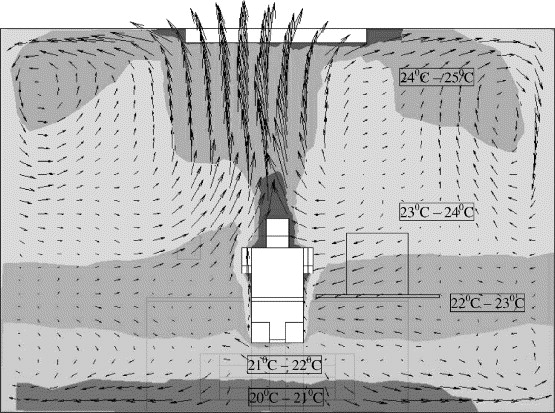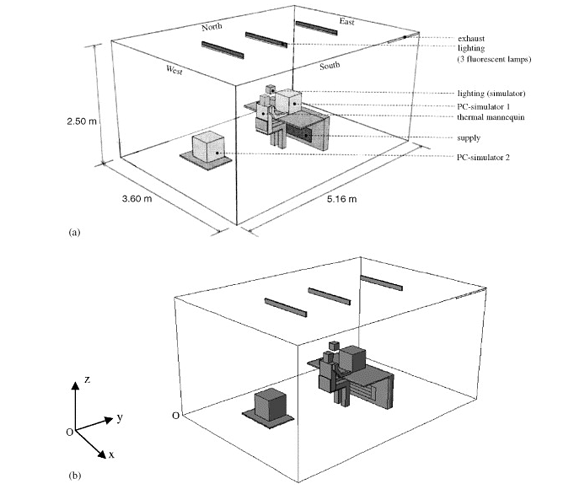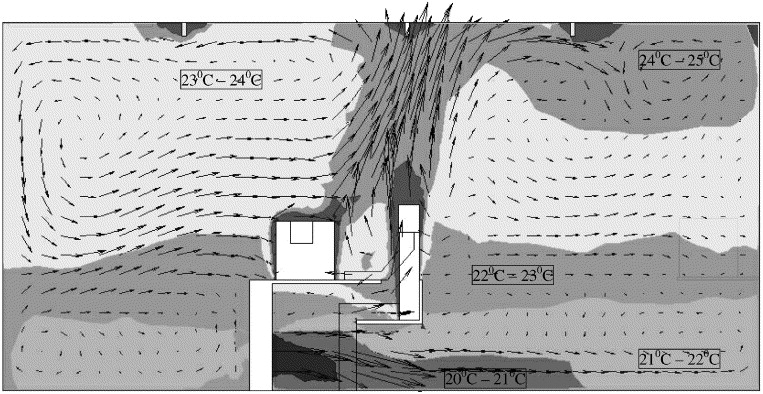Status
Started by @Vgon_alves.
Description:
Overview
Thermal comfort of an office building plays a big role in the productivity, and is the key factor in its design process. Parameters such as velocity and temperature distribution within office space can be computed with the help of Computational Fluids Dynamics (CFD) analysis. In this study SimScale platform will be used to evaluate the capabilities of CFD softwares to predict the temperature and velocity distribution within a simplified office building, having multiple heat sources.
Input Data
Fig.1 CAD model of office.
Inlet airflow rate: 0.047m^3/s
Inlet air Temperature: 19.8 °C
Walls:
- Floor: 22.2°C
- Ceiling: 22.3°C
- Northern Wall: 23.2°C
- Southern Wall: 23.2°C
- Western Wall: 22.6°C
- Eastern wall: 22.7°C
The thermal mannequin has a surface area of 1.6 m2 and is modeled to generate convective heat equal to 59.8 W. This value corresponds to 37.4 W/m2. Heat emitted by the PC-simulator and the lighting simulator is set equal to 61.5 and 10.9 W, respectively. Each fluorescent lamp generates 18.1 W.
Purpose
The purpose of this project is to validate the accuracy of the solver for indoor convective heat transfer. The velocity and temperature contours are to be compared with the proposed results.
Fig.2 Temperature contours and velocity vectors at the central yz plane [1].

Fig 3. Temperature contours and velocity vectors at a xz plane (y = 2.40m) [1].
Key Words
Computational fluid dynamics, CFD, Mathematical models, Indoor environment, Office spaces, Thermal comfort
Literature & Sources
[1] A. Stamou, I. Katsiris, Verification of a CFD model for indoor airflow and heat transfer, Building and Environment, Volume 41, Issue 9, 2006, Pages 1171-1181, ISSN 0360-1323, http://dx.doi.org/10.1016/j.buildenv.2005.06.029.

